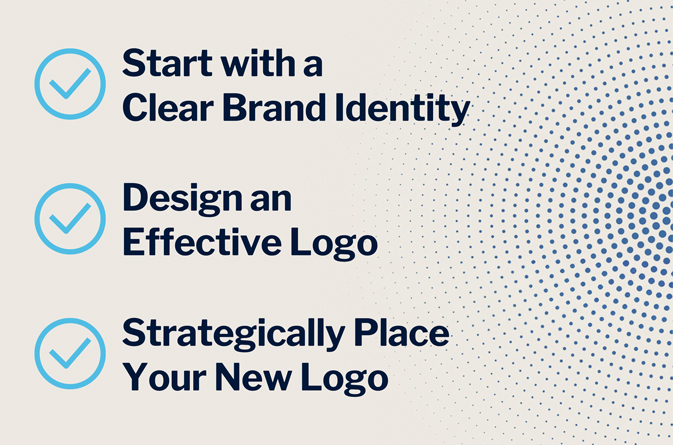Branded merchandise is a powerful way to increase visibility, boost recognition, and connect with your audience. But a well-chosen product is only half of the equation —how your logo is presented makes a big difference. A thoughtfully placed and well-designed logo reinforces your brand identity and helps customers instantly associate your products with your business.
Here’s how to ensure your logo looks its best on every item you brand:
-
Start with a Clear Brand Identity
Before you put your logo on a product, it’s important to understand what your brand stands for. This foundation guides every design decision you make — from color choice to font style to logo size.
- Define your brand values
What message are you trying to send? Are you modern and minimalist, bold and playful, or classic and professional? Your logo should reflect your brand’s personality and mission.
- Understand your audience
Think about who you’re trying to reach. A logo that appeals to young creatives may not resonate with a corporate client base. Knowing your audience ensures your design connects.
- Evaluate the landscape
Take note of how other brands in your space present themselves visually. This can help you identify trends, avoid clichés, and stand out with a unique, memorable look.
-
Design a Logo That Works Across All Formats
An effective logo needs to adapt. Whether it’s printed on a custom pen or stitched on a branded jacket, it should always be clean, legible, and instantly recognizable.
- Keep it simple
Complex graphics can get lost when resized or applied to different materials. A clean, uncluttered design is more versatile and easier to remember.
- Aim for versatility
Your logo should look great in full color, black and white, large-scale, or small-scale. Consider creating variations (horizontal, stacked, icon-only) to give yourself options while staying on-brand.
- Choose the right colors and fonts
Stick to a defined color palette and consistent typography. These design elements reinforce your brand’s visual identity and help create a cohesive look across products.
- Add a tagline (if it makes sense)
A short, catchy tagline can complement your logo on larger items like personalized tote bags or drinkware. Keep it secondary to the main design so it doesn’t crowd the logo.
-
Use Strategic Logo Placement
Once your logo is ready, think about where and how it appears on the product. The right placement draws attention while maintaining visual appeal.
- Be consistent
Using your logo the same way across different items builds recognition. Maintain consistency in spacing, orientation, and color usage.
- Think product by product
Logo placement isn’t one-size-fits-all. What works on a branded water bottle might not work on a notebook. Choose positions that make the logo visible but don’t overwhelm the product’s design.
- Balance branding and style
The best branded products are those that people want to use. A large, overly dominant logo can make a product feel less stylish or personal. Sometimes, subtle touches — like brand colors or a small logo near the seam —can be just as effective.
- Test and adjust
If you're launching a new merch line or updating your branding, don’t be afraid to get feedback. Ask colleagues or customers how they perceive the design and refine as needed.

Your Logo, Your Story — Make it Count
More than a mark, your logo is a visual handshake with your audience. When applied thoughtfully, it turns everyday products into brand advocates. Whether you’re creating gifts, giveaways, or merchandise to sell, taking the time to implement your logo effectively will ensure your brand looks as good in the real world as it does online.